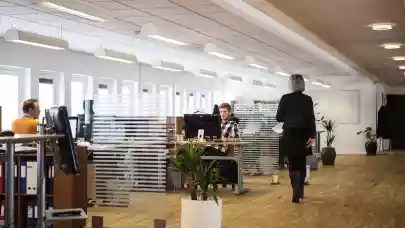
CEE, much like the wider European market, continues to experience subdued market sentiment, while Romania remains a positive light in the region, the RICS Commercial Property Monitor for Q1 2023 reveals.
Key findings
- Continent-wide inflation, monetary tightening and ongoing geopolitical instability continue to undermine confidence in Central and Eastern European commercial property markets
- Capital values remain under downward pressure in most European localities
- Occupier sentiment is not as downcast as investment market feedback
- Hungary exhibits particularly weak investor sentiment while Romania remains modestly positive
In terms of occupier demand, Poland dipped into negative net sentiment (-21) for the first time since Q1 2020, falling from the neutral 0 reading reported in Q4 2022. Hungary remains broadly flat this quarter, (-18 versus -19 in the previous quarter), as well as the Czech Republic (-14 versus -11 last time). Romania is however bucking the subdued trend of the region on several key indicators, posting another positive reading on occupier demand (+9).
Three-month capital value expectations dropped into negativity in the Czech Republic with a -42 reading, coming off a 0 in the prior month. This is the lowest capital expectation sentiment reported in the Czech Republic since Q2 2020. Similarly, Hungary saw a softening with a -57 compared with -27 reported in the previous quarter. There was however some positivity in Poland, with capital value expectations rising to -32 from -54 previously while Romanian positive sentiment grew a little from +2 to +13 this quarter.
Foreign investment enquiries in Hungary dropped to a -55 reading, down significantly from the -20 reported in Q4 2022. This is the weakest reading since Q2 2020 during Hungary’s COVID-19 state of emergency. Foreign investment enquiries also weakened in the Czech Republic (-63 versus -49 in the last quarter), as well as Poland (-63 versus -55). There was however a slight strengthening in this sentiment in Romania where it remains marginally positive at +6, up against the +2 reading in the prior quarter.
As a result of the supply/demand deficit for industrials, contributors continue to envisage still solid rental growth across Europe (at least for prime space), which is expected to outstrip all other categories tracked by the survey. On the same basis, rental growth projections across some of the more alternative asset classes are also comfortably positive. Indeed, multifamily units, data centres, student housing, aged care facilities, life sciences, leisure and hotels are all anticipated to see an uplift in rental prices (to a greater or lesser degree) over the year to come. Conversely, secondary retail and office rents appear significantly challenged, with respondents foreseeing further declines during the year ahead.
Likewise, at the country level, secondary office and retail remain the poorest performing areas of the rental market in the Czech Republic, Hungary, and Poland. However, Romania is more positive and does not expect rents to fall for these types of properties. This places Romania as the only market in Europe other than Portugal where the secondary office and retail rental market is not expected to fall.



